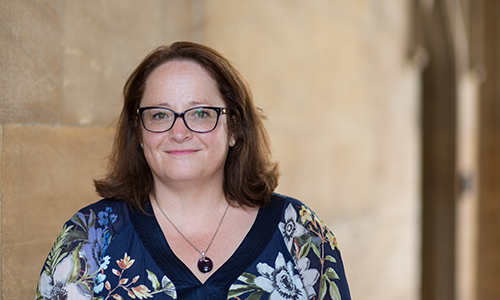Exploring the important topic of menopause and its impact on managing money.
There are certain subjects that we find extremely difficult to talk about – death and money being two of them. I’m going to leave death for another day and add another one here: menopause.
In a world where we tend to talk more freely about all sorts of things, money and menopause are two subjects that still elicit a sharp intake of breath if mentioned at a dinner party (remember those?) or on a Zoom call. Perhaps that’s why we need to open up the conversations around these important aspects of our lives.
Broadly speaking, around 50% of the population will experience menopause. Include those who live and work with people going through it, and you’ll see that most of us are going to have some experience of menopause in our lifetimes. But how does menopause affect our financial health?
A majority of individuals experiencing menopause suffer some form of “brain fog”, add into that changes in sleep patterns, fatigue, changes in mood, temperature issues, demands at work, family responsibilities, it is no wonder that some chose to work part-time or accept a role below their true capabilities to accommodate the changes they are going through.
A recent article by menopause expert and author, Pat Duckworth, says that, according to research, around 75% of people experiencing menopause have symptoms that affect their performance. 25% consider leaving their jobs altogether. This all impacts their income now and their ability to plan for their financial future.
It is fifty years since the introduction of gender pay equality in the UK. Nevertheless, the gender pay-gap is still with us. Although the gap is closing – 15.5% in 2020, down from 17.4% in 2019, according to the Office for National Statistics - it is still a sizeable sum over a working lifetime. Sadly, the figures become even starker when we look at incomes in retirement.
According to a report in September 2020 from trade union Prospect, the gender pension-gap was over 40%, representing an average difference in retirement income between the genders of £7,500 per annum. With many people reaching their peak earning years after the age of 50 and therefore having more disposable income to add to their pensions at this time, reducing your working hours as a result of menopause symptoms can be detrimental to pension savings.
Womens’ life expectancy is, on average, around 4 years longer than a man’s, but in general, women tend to suffer marginally more ill-health in later years. These facts alone show how important it is to ensure that women have sufficient savings for their retirement.
So what can you do? Well, talk to your healthcare professional about any menopause symptoms and get good advice about this. It’s beyond the scope of this article, but make sure you get all the help you need in avoiding, where possible, or managing your symptoms.
On the financial front, the best advice is always to start planning early. Start putting a little away towards your pension as soon as you can. Auto-enrolment will help for future generations, but it’s never too late to start. The government wants us to save for our retirement and provides generous tax breaks to do so.
As long as you are under 75 years of age, you should benefit from tax relief on contributions. Furthermore, while invested in a pension, your investments will not suffer income or capital gains tax. Finally, if there are funds remaining within the wrapper when you die, your pension is normally exempt from Inheritance Tax (IHT).
Pensions are not the only option for providing you with an income when you reduce or stop working. The most important thing to do is to get some good advice. Find someone you like dealing with and who you trust: someone you can have honest conversations with and whose counsel you can rely on, knowing that they understand you and your aspirations. Importantly, you need someone who can be relied on to have a sensible conversation with if you’re having a bad day. Let them take some of the emotion and the worry out of your money, by allowing them to make decisions, or at least suggestions, for you.
A meeting with your financial adviser should not be a chore or something you dread. Money is important, but how you look after it and what you do with it is far more important. And getting good, professional advice is a very good place to start, whatever your stage in life.
Important information
The contents of this article are for information purposes only and do not constitute advice or a personal recommendation. Investors are advised to seek professional advice before entering into any investment decisions. Please also note the value of investments and the income you get from them may fall as well as rise and there is no certainty that you will get back the amount of your original investment. You should also be aware that past performance may not be a reliable guide to future performance.
How would you like to share this?

